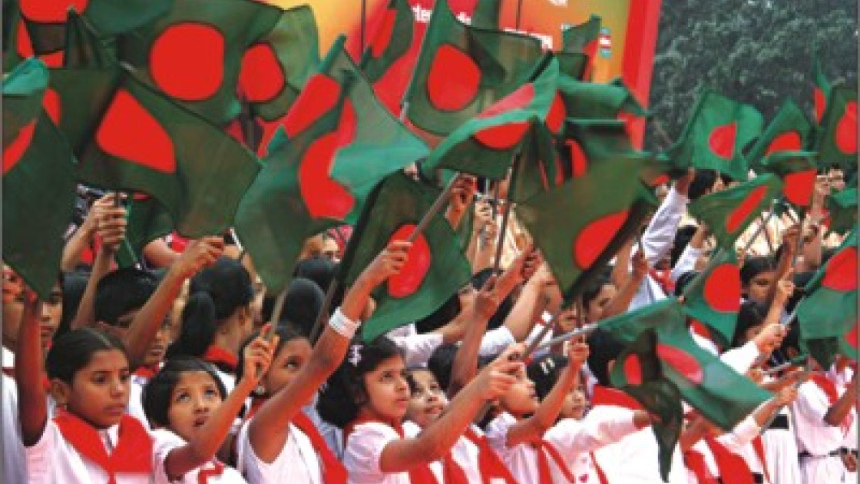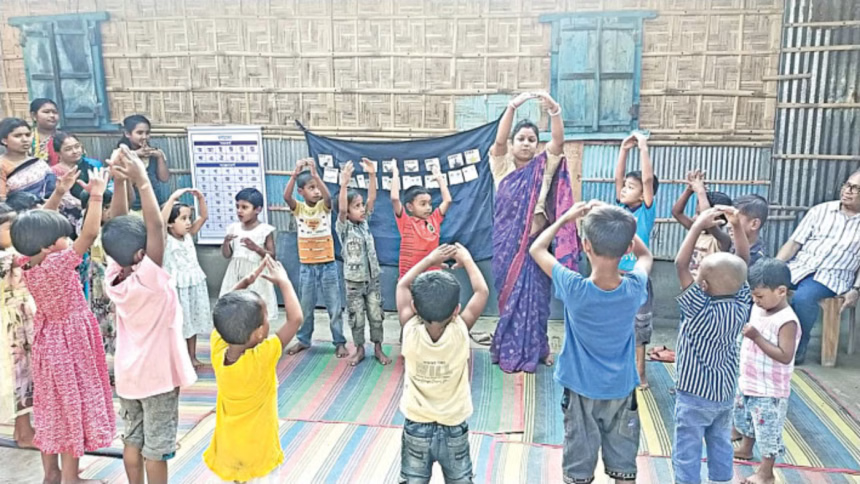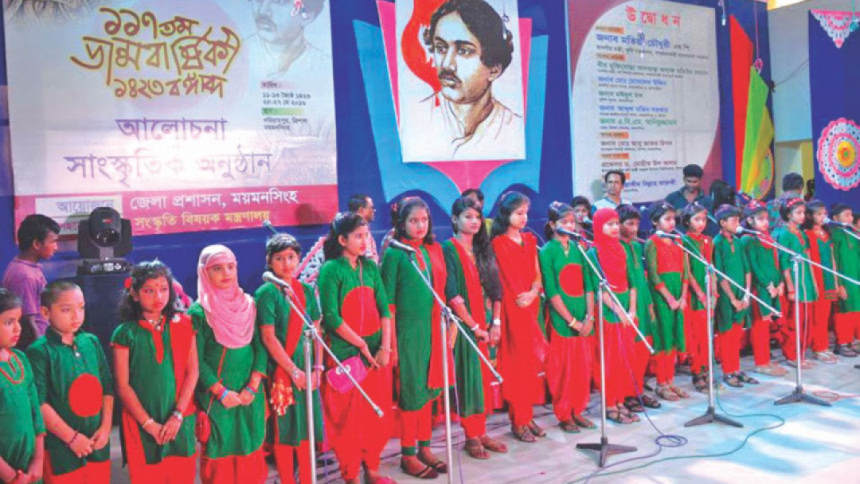September 19, 2025
DHAKA – The National Ulama Mashayekh Aimma Parishad has announced a protest march to be held after Juma prayers tomorrow, demanding that religion teachers be employed in all primary schools in place of music and dance teachers.
The announcement came during a seminar held on Tuesday at the auditorium of Institution of Diploma Engineers, where leaders of Jamaat-e-Islami, Islami Andolon Bangladesh, Khelafat Majlish, Bangladesh Khelafat Majlis, and Bangladesh Khelafat Andolon were present.
Speakers at the event said the interim government’s decision — to appoint music and dance teachers in primary schools — is indirectly linked to “atheist ideology”, calling it a “conspiracy to erode the faith of future generations”.
They stressed that there is no alternative to religious and moral education, accusing the interim government of trying to drag the nation backwards. They vowed not to allow this to happen, promising that the “corrupting influence” of music and dance would be uprooted. If necessary, they said, a united movement would be waged to press for the appointment of religion teachers.

Students waving the national flag at a cultural programme. PHOTO: THE DAILY STAR
When The Daily Star sought comments from the Islamic Foundation in this regard, Dr Waliur Rahman Khan, a Muhaddith there, said, “Teaching dance and music in primary schools, or recruiting teachers for those subjects, is an unnecessary, wasteful and illogical step.”
According to him, Bangladeshi students are already “weak in essential subjects such as Bangla, English, mathematics and science”. Their ignorance about religion, manners, morality and ethics prevents them from being freed from lies, corruption and wrongdoing. He argued that introducing dance and music means cutting time from essential subjects and burdening children with non-essentials.
He added, “The developed world has progressed by practising honesty, discipline, and the pursuit of knowledge, science and technology. The Arab world has advanced by ensuring religious observance, justice, and equitable distribution of resources. They have not broadly taught dance and music.”
Given Bangladesh’s current socio-economic realities, he said, no conscious or patriotic person can support the idea of teaching music and dance in all schools.
Meanwhile, reports from Mena Magazine, Muslim Mirror and several other Saudi outlets revealed that under its “Vision 2030”, Saudi Arabia in 2023 trained 7,000 female kindergarten teachers in music. Last year, the kingdom also appointed over 9,000 music teachers in government schools. Noor Al-Dabbagh, director of planning at the Saudi Ministry of Culture, said the aim was to reform education by integrating arts and culture into the curriculum.
Other Muslim-majority countries, including Malaysia, Indonesia, Turkey and Egypt have also retained music in their national curricula.

A teacher leads her students in a lively recitation of “Twinkle, Twinkle, Little Star,” guiding them with rhythmic hand gestures. PHOTO: THE DAILY STAR
A 2023 study by Kira Weiss, a PhD candidate in ethnomusicology, found that since 1931, both Arab and Western music instruction have been part of Egypt’s government school curriculum. Cairo even established separate institutions for Arab music training.
A 2009 research report by Professor Dr Ilhan Özgül of Kastamonu University in Turkey, said that music became compulsory in Turkish primary schools in 1968. The curriculum was formally approved by the Ministry of Education in 1994, and revised by a special commission in 2006.
In Malaysia, a 2007 study by Muhammad Hasan Abdullah, lecturer in Music and Performance Arts at Sultan Idris Education University, found that music was first introduced in primary schools in 1982. In 1996, it was also included in selected secondary schools.
In Indonesia, a 2023 joint report by Professor Sularso and colleagues at Ahmad Dahlan University said music has been compulsory in primary schools since the 1970s. Following the 2021 “Nusantara Traditional Music Pre-Congress”, efforts were also made to include traditional music in curricula as a strategic move.
A 2009 European Commission report mentions that music is compulsory in primary schools across Europe. In the UK, it is mandatory for children aged 5 to 14.
In China’s nine-year compulsory education system, music is a prescribed subject, while Sweden also treats it as an essential part of schooling. Music and dance are compulsory in Germany, Japan, Australia and South Africa.

Primary school students performing at a programme. PHOTO: THE DAILY STAR
Former caretaker government adviser and Executive Director of the National Literacy Movement, Rasheda K Chowdhury, said that opposition to music and dance in Bangladesh reflects “hardliner thinking”.
“Why should the government step back because of what hardliners say? The government must act considering students’ future, their creativity and innovative skills — so that a creative nation is built,” she told The Daily Star.
In her view, culture and arts are vital for fostering intellectual growth.
“On one side we need creativity and innovative skills; on the other, we need respect for others and for other faiths,” she said.
“We cannot discard the heritage of Lalon Shah, Hason Raja, Shah Abdul Karim and Kazi Nazrul Islam,” she said.
Professor Kamrul Hasan Mamun of Dhaka University’s Physics Department said he sees no contradiction between religious education and music.
“In this region, names like Ustad Alauddin Khan, Bade Ghulam Ali Khan and Ustad Bismillah Khan stand out. All were devout Muslims and yet practised music. There is also a link between music and subjects like mathematics and physics. Many scientists practised music,” he said.
“People of Bengal have poetry in their blood, songs in their hearts. Even those without formal education write beautiful lyrics, compose melodies, and sing. Where else in the world is there such a rich culture?
“Are we now going to forget this culture?” he asked, warning that if the government caves in out of fear, “this Bangladesh will no longer exist. Society will deteriorate, division and hatred will grow.”
In a tone of frustration, he added, “Why this hostility towards music? Where will this thinking take us? Back to the primitive age?”
Writer-lyricist Latiful Islam Shibli, executive director of the Kabi Nazrul Institute, said he is unconcerned about what religious parties say on the streets or in public meetings.
“What is said in protests or gatherings is not the issue. The government will frame education policy considering the emotions, history and politics of this country, and will proceed accordingly,” he told The Daily Star.
Meanwhile, Ain O Salish Kendra (ASK) described the demand for cancelling the recruitment of music teachers in public primary schools as a “premeditated” act.
In a statement, ASK said the demand not only violates constitutional rights but also represents an attempt to weaken the country’s national culture.


